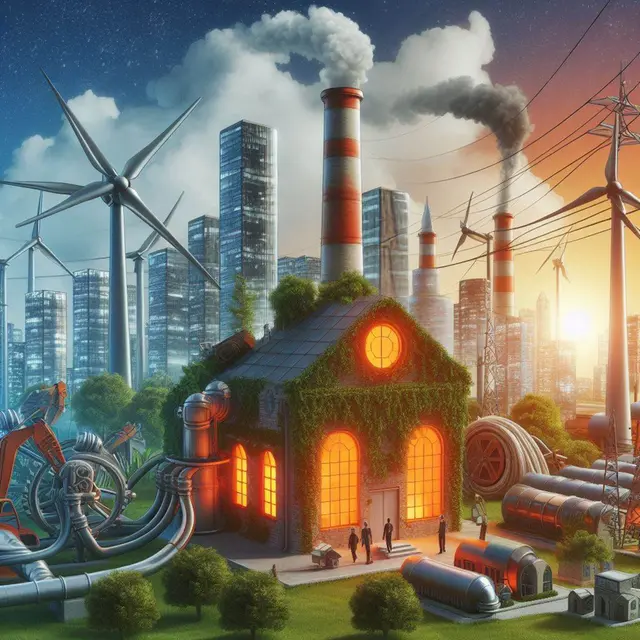
Apr 05, 2024 • Sustainability
Sustainable Economics: Greening Your Wallet and the World
From Green Initiatives to Personal Habits: How Sustainability is Shaping Our Economy and Your Wallet

In today's economic landscape, sustainability isn't just a trend; it's a lucrative opportunity waiting to be seized. So, grab your eco-friendly tote bag and let's explore how embracing sustainability can not only save the planet but also enrich your bank account.
Macro Marvels:
At the state level, transitioning to a sustainable economy isn't just a noble pursuit; it's a smart economic move. Reports from authoritative sources like the Global Commission on the Economy and Climate project a staggering $26 trillion in economic benefits by 2030 through a shift towards a low-carbon future. This isn't just about reducing emissions; it's about creating new opportunities, from renewable energy jobs to cutting healthcare costs related to pollution. Imagine the economic boost from investing in wind farms, solar panels, and green infrastructure projects. These initiatives not only create jobs but also attract investment and foster innovation, positioning states at the forefront of the burgeoning green economy.
Moreover, sustainable practices can enhance resilience against economic shocks. By diversifying energy sources and reducing dependence on fossil fuels, states can mitigate the risks associated with volatile oil prices and geopolitical instability. This stability translates into greater economic security and long-term prosperity for residents.
Policy Perspectives:
Governments play a pivotal role in promoting sustainability through policy interventions. This includes implementing carbon pricing mechanisms to internalize the external costs of pollution, subsidizing renewable energy initiatives to incentivize investment, and enacting regulations to enforce environmental standards. Additionally, investing in public transportation infrastructure and promoting energy-efficient building codes can further accelerate the transition to a sustainable economy.
Micro Miracles:
But what does this mean for you, the everyday consumer? Well, it means more money in your pocket. Take electric vehicles, for instance. While the initial investment might seem steep, the long-term savings on fuel costs can be substantial, potentially saving you hundreds or even thousands of dollars each year. And it's not just about cars; embracing energy-efficient appliances, installing solar panels, or even just reducing your consumption can all lead to significant savings over time. Plus, with the growing demand for sustainable products, there's a market ripe for savvy consumers to capitalize on.
Beyond the financial benefits, there are also intangible rewards to embracing sustainability. By reducing your carbon footprint, you're contributing to a healthier planet for future generations. And as more individuals and businesses prioritize sustainability, there's a ripple effect that can lead to meaningful change on a global scale.
The bottom line? Embracing sustainability isn't just a moral imperative; it's a financial opportunity. Whether you're a state looking to boost your economy or an individual looking to save money, going green is the way forward. So, recycle that plastic, carpool to work, and consider making eco-conscious choices in your everyday life. Not only will you be helping the planet, but you'll also be padding your wallet in the process. It's a win-win situation for both your finances and the future of our planet.



